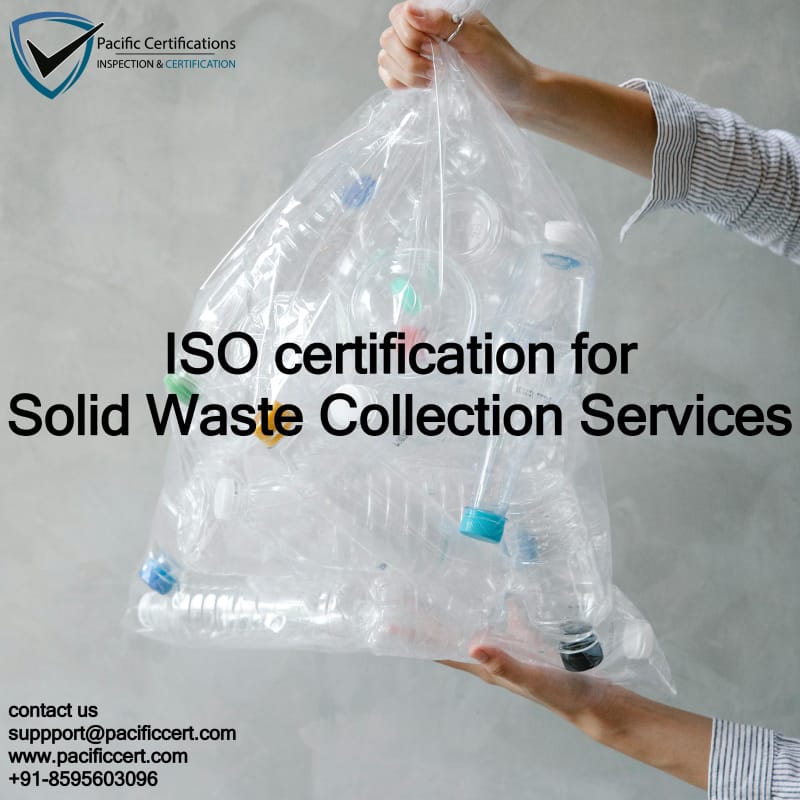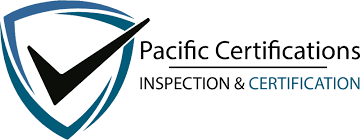ISO Certifications for Solid Waste Collection Services, Requirements and Benefits

Introduction
Solid waste collection service providers play a critical role in public health, environmental protection, and urban sustainability. These services include household waste collection, commercial and industrial waste pickup, recyclable material collection, hazardous waste segregation support, route management, transfer operations, and coordination with disposal or treatment facilities. Reliability, safety, environmental compliance, and service consistency are essential, as failures directly impact communities, ecosystems, and regulatory outcomes.
Solid waste collection organizations manage vehicle fleets, frontline workers, public interaction, environmental risks, and regulatory reporting under demanding operational conditions. ISO certifications have therefore become an essential framework for solid waste collection service providers to demonstrate structured service governance, occupational safety controls, environmental responsibility, asset reliability, and consistent operational performance across collection zones and contracts.
In waste collection, public trust is built through systems that work safely, consistently, and every day.
For more information on how we can assist your solid waste collection organization with ISO certifications, please contact us at [email protected].
Quick Summary
ISO certifications provide solid waste collection service providers with internationally recognized frameworks to manage service quality through ISO 9001, environmental responsibility through ISO 14001, occupational health and safety through ISO 45001, asset and fleet management through ISO 55001, service efficiency through ISO 24511 and ISO 24512, information security through ISO/IEC 27001, and business continuity through ISO 22301. These certifications help waste collection operators improve reliability, reduce environmental and safety risks, and strengthen confidence with municipalities, regulators, and communities.
Applicable ISO Standards for Solid Waste Collection Services
Below are the most relevant ISO standards applicable to solid waste collection service providers:
ISO 9001: Quality Management Systems
ISO 9001 supports structured planning and execution of waste collection services, including route scheduling, service monitoring, complaint handling, and continual improvement. It helps ensure consistent service delivery across zones, crews, and contract periods.
ISO 14001: Environmental Management Systems
Solid waste collection activities have direct environmental impacts related to emissions, spills, noise, and waste handling. ISO 14001 provides a framework to identify impacts, implement controls, and demonstrate environmental responsibility to regulators and communities.
ISO 45001: Occupational Health and Safety Management Systems
Waste collection is a high-risk activity involving traffic exposure, manual handling, sharp objects, and biological hazards. ISO 45001 supports systematic hazard identification, risk mitigation, and worker protection.
ISO 55001:2024 – Asset Management Systems
ISO 55001 helps waste collection operators manage vehicle fleets, bins, compactors, and equipment through lifecycle planning, preventive maintenance, and risk-based investment decisions.
ISO 24511 / ISO 24512 – Public Utility Service Governance
These standards provide guidance for service quality, customer communication, performance indicators, and transparency in public utility services, supporting municipal and contracted waste collection operations.
Click here to find out more applicable standards to your industry
What are the requirements of ISO Certifications for Solid Waste Collection Services?
Solid waste collection service providers seeking ISO certification must establish and maintain documented policies, procedures, and records aligned with the selected ISO standards. Key requirements include the following:
ISO 9001:2015 – Quality Management Systems
Establish a documented quality management system
Define waste collection processes and service objectives
Control route planning, service execution, and reporting
Monitor performance and implement improvements
ISO 14001:2015 – Environmental Management Systems
Identify environmental aspects such as emissions, spills, and noise
Establish environmental objectives and controls
Monitor environmental performance and compliance
ISO 45001:2018 – Occupational Health and Safety
Identify hazards related to traffic, lifting, and waste handling
Implement safety procedures and training
Monitor incidents and corrective actions
ISO 55001:2014 – Asset Management Systems
Identify critical vehicles and equipment
Plan maintenance and replacement cycles
Manage risks related to asset failure
ISO 22301:2019 – Business Continuity Management
Identify critical waste collection services
Develop contingency plans for disruptions
Test and review continuity arrangements
Tip:Start by mapping your daily collection lifecycle—route planning, waste pickup, transport, unloading, equipment cleaning, and reporting—against ISO requirements to identify safety, environmental, and service gaps early.
For further information on how we can assist your solid waste collection services with ISO certifications, contact us at [email protected].
What are the benefits of ISO Certifications for Solid Waste Collection Services?
ISO certifications are suitable for municipal waste departments, private waste collection contractors, and integrated sanitation service providers. Key benefits include:
Improved service reliability and route consistency, supporting public satisfaction and contract compliance.
Stronger worker safety controls, reducing injuries and lost workdays.
Reduced environmental impact, supporting emissions control and regulatory compliance.
Better fleet and equipment reliability, lowering breakdowns and service disruptions.
Enhanced credibility with municipalities and regulators, supporting tender success and renewals.
Improved emergency preparedness, ensuring continuity during strikes, weather events, or equipment failures.
Solid waste collection services are under growing pressure due to urban population growth, stricter environmental regulations, and rising service expectations from municipalities and residents. Industry studies indicate that municipal solid waste volumes are increasing by 2–3% annually, while collection costs and safety risks are also rising. Regulatory audits increasingly focus on service consistency, worker safety, emissions control, and documentation, driving demand for structured management systems among waste service providers.
Operational benchmarking shows that waste collection organizations implementing formal quality, safety, and asset management systems achieve 15–25% reductions in missed pickups, vehicle downtime, and safety incidents compared to operators relying on informal controls. Looking forward, ISO-aligned governance is expected to become a baseline requirement for medium-to-large waste collection contractors, as municipalities prioritize certified providers that demonstrate reliability, transparency, and environmental responsibility.
How Pacific Certifications Can Help
Pacific Certifications, accredited by ABIS, acts as an independent certification body for solid waste collection service providers by conducting impartial audits against applicable ISO standards. Our role is to objectively assess whether documented management systems and operational practices conform to international ISO requirements, based strictly on verifiable evidence and records.
We support waste collection organizations through:
Independent certification audits conducted in accordance with ISO/IEC 17021
Practical assessment of real collection operations, fleet controls, and safety systems
Clear audit reporting reflecting conformity status and certification decisions
Internationally recognized ISO certification upon successful compliance
Surveillance and recertification audits to maintain certification validity
If you need support with ISO certification for your solid waste collection services, contact us at [email protected] or +91-8595603096.
Author:Ashish
Ready to get ISO certified?
Contact Pacific Certifications to begin your certification journey today!
Suggested Certifications –
Read more: Pacific Blogs
